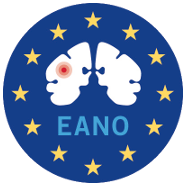-
Views
-
Cite
Cite
Ryoichi Iwata, Akio Asai, Tomoki Ito, Hideyuki Oshige, Kunikazu Yoshimura, Masahiro Nonaka, CN-08
THERAPEUTIC CONCENTRATION OF TEMOZOLOMIDE DO NOT IMPAIR THE FUNCTION OF HUMAN DENDRITIC CELL SUBSETS, Neuro-Oncology, Volume 16, Issue suppl_5, November 2014, Page v47, https://doi.org/10.1093/neuonc/nou243.8Close - Share Icon Share
Abstract
In humans, CD11c+ myeloid dendritic cells (mDCs) and plasmacytoid DCs (pDCs) represent two major subsets of DCs. They play distinct roles in innate and adaptive anti-tumor immunity by their expression of specialized cytokines and molecules. In addition, monocytes-derived DCs (moDCs) as in vitro-made myeloid DCs are commonly used as DC-vaccine therapy for several malignancies. However, the efficacy of DC-vaccine monotherapy has been reported to be limited, and therefore, combination use of appropriate chemotherapy would be required for the treatment strategy of immunotherapy. Because anti-tumor reagents generally have an activity to kill hematopoietic cells or inhibit lymphocyte functions, congeniality of anti-tumor reagents and DCs is important for the effective combination therapy. Temozolomide (TMZ) is an oral alkylating agent with established anti-tumor activity in patients with glioblastoma. In this study, we focused on the TMZ function and explored its influence on human DC subsets, including blood CD11c+ mDCs, pDCs, and moDCs. We found that over 300 mM of TMZ killed the DC subsets but that there were no killing effect at in vivo clinical concentration of less than 100 mM TMZ. Up to 100 mM TMZ did not affect IFN-a production from pDCs and IL-12 production from blood mDCs and moDCs and their expression of surface B7 and TNF superfamilies in response to various TLR ligands. In addition, TMZ did not inhibit moDC-mediated T cell responses. Thus, TMZ can elicit anti-tumor activity without affecting DC-mediated immune responses. Our present findings suggest that TMZ is a potential anti-tumor reagent suitable for the combination use with DC-vaccine therapy.
- cytokine
- tumor necrosis factors
- alkylating agents
- immune response
- cancer
- chemotherapy regimen
- glioblastoma
- combined modality therapy
- dendritic cells
- immunity
- immunotherapy
- interleukin-12
- ligands
- lymphocytes
- monocytes
- t-lymphocytes
- vaccines
- neoplasms
- interferon-alpha
- mass or substance concentration per volume
- temozolomide
- molecule
- killing






